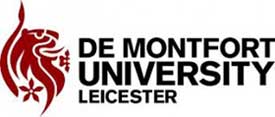Health and Community courses
De Montfort University

- UK
- World Rank : 601
- Visit Website
From mental health support services to housing and homelessness, youth offending, and drug abuse, this course attracts professionals with expertise in diverse health and community settings.
Our core modules will give you an insight into the theories and practices of community development, introducing key concepts in practice, policy and National Occupation Standards. You will explore this in relation to issues surrounding health and wellbeing and discover new strategies and methods of social science research.
You can then expand your expertise in areas that interest you most, with modules covering topics in mental health, contemporary social issues, youth and community development, anti-oppressive practice, race and diversity, and management of services and people.
You may wish to learn about non-clinical health and wellbeing, health education, or development projects focusing on a social model of health and wellbeing. The content of this programme is also relevant for those wishing to explore social health and community provision in developing countries.
Ideal candidates will have an interest in group work, informal learning and activity, and outreach and community work, particularly with young people and adults identified as ‘hard to reach’ and ‘excluded’.
Your studies will benefit from a flexible blended learning approach, where the majority of modules are taught via distance learning with two block teaching weeks per academic year.
Key features
Scholarships:
At DMU, we are committed to helping our graduates enhance their careers and personal development through further study.
DMU Sports Scholarship
Find out more about the DMU Sports Scholarships worth up to £6,000.
Minimum of 65% average in your four best subjects (excluding Hindi) in Standard 12. We may also check your standard 10 results in English and Maths
If English is not your first language, you will be required to provide an IELTS certificate, or equivalent. Our undergraduate IELTS requirements are:
If English is not your first language an IELTS score of 6.5 or equivalent when you start the course is essential.
| Type of Institution | Public |
| Campus Setting | Urban |
| Endowment | £1.17 million |
| Number of Campuses | 4 faculties |
| Number/Percentage of International Students | 23205 |
| Total number of Professors | 3240 |
| Student Satisfaction Rate | 86% |
| Graduate Job Rate | 97.3% |
| Number of Residence Vacancy | Around 3000 |
| International fee | Undergraduates- £13240 (annual) Postgraduates- £15950 (annual) |
| Number of Academic Programs | UG, PG, Part time, distance, blended |
| Mode of Program | Full time, distance and online |
| Average Graduate Salary | 19800 pounds a year |
| Field of Study | Avg.Fees |
|---|---|
| Art, Design and Humanities: | £13,750 |
| Business and Law | £13,750-£14,550 |
| Media | £13,750 - £14,250 |
| Engineering | £14,250 |
| Computing | £14,250 |
| Health and Life Sciences | £13,250 - £14,250 |
| Nursing BSc | £14,950 |
| Expenses | Estimated cost in pounds |
|---|---|
| Undergraduate tuition fee | 13,250- 14950 |
| Postgraduate tuition fee | 13600-15,900 |
| On campus accommodation | 5,000-6040 |
| Average cost of living | 97-110 per week |
DMU International Scholarship up to 1500 pounds
| Tuition Fees in UK (1st Year Average) | MS: £17276 | MBA: £17276 | BE/Btech: £16632 | BBA: £15130 | BSc: £16632 | MFin: £19000 | MA: £15560 | MIM: £18241 | MEM: £16950 | MArch: £14271 | BHM: £12662 | MIS: £15344 | MEng: £12876 | MBBS: £28865| MPharm: £15452 |
| Average Accomodation & Food Costs in UK | £850 to £1,050 a month |
| Entrance Exams in UK | TOEFL: 88 | IELTS: 6.5 | PTE: 59 | GMAT: 590 |
| Work and Study in UK | Permitted for 20 hours/week with a valid study permit. |
| Post Study Work Permit in UK | 2 Year after graduation depending on the course. |
| Cost of Student Visa in UK | £348 |
| Student Visa in UK | Your nationality, duration of your stay and purpose of your stay are the three essential factors for UK visa. For Non-EU students UK visa is mandatory. |
| Intakes in UK | There are mainly two intakes in UK: January/February & September/October. |
| Top Job Sectors in UK | IT Engineering, Product Design, Mobile Development, Designers, Logistics, etc. |
| Economy in UK | Growth Rate: 1.3% (2018) 1.4% (2019) 1.4% (2020e), 6th Largest Economy in the World by Nominal |
Tuition & fees :
£ 14,600
Hostel & Meals :
£ 6,384
Total
£ 20,984